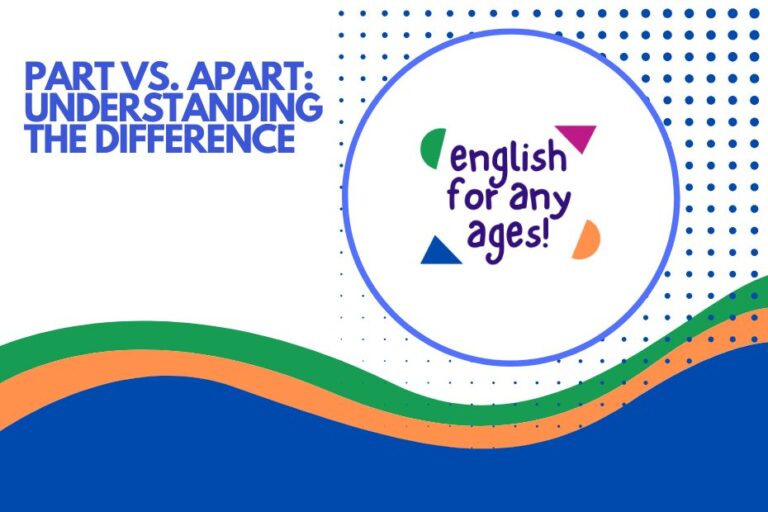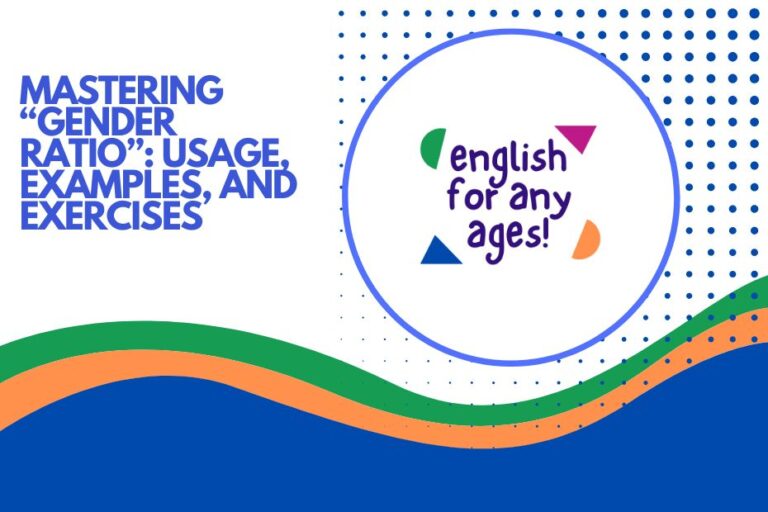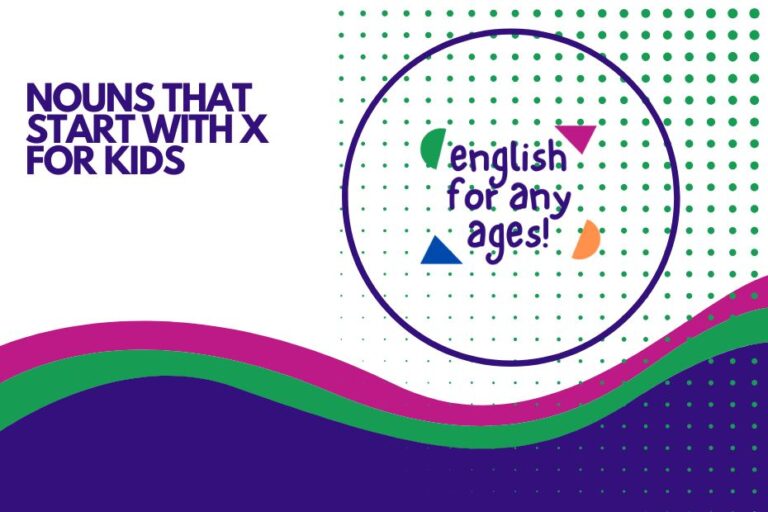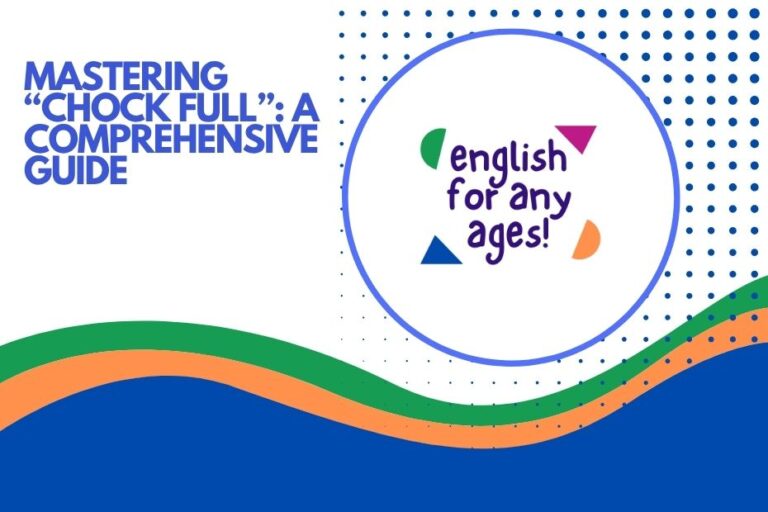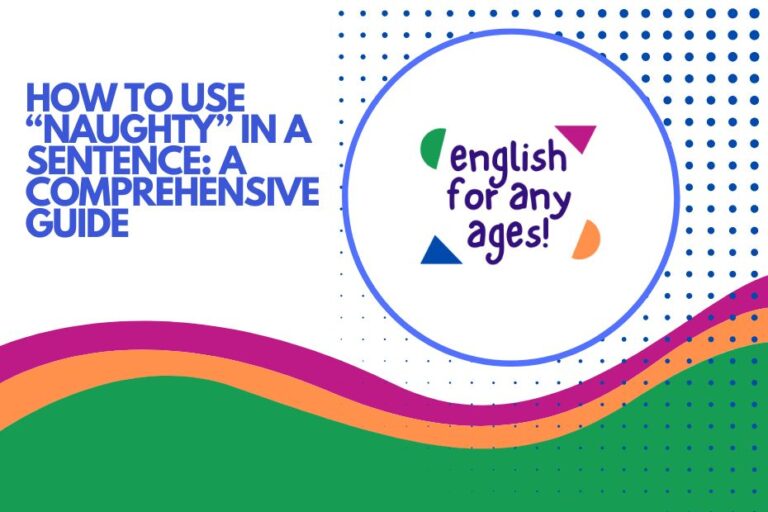Expressing Enthusiasm: Diverse Ways to Say “Looking Forward to Learning”
Expressing anticipation for learning in a class is a wonderful way to set a positive tone and demonstrate your engagement. Whether you’re a student, a professional taking a course, or simply eager to expand your knowledge, knowing how to articulate your enthusiasm effectively enhances your communication skills.
This article explores a variety of ways to convey your excitement and anticipation for learning, providing you with the tools to express yourself clearly and confidently. Understanding these nuances will not only make your interactions more meaningful but also improve your overall communication skills in academic and professional settings.
This guide is perfect for students, teachers, professionals, and anyone keen on refining their expressive capabilities in English.
Table of Contents
- Introduction
- Definition and Importance
- Structural Breakdown of “Looking Forward To”
- Variations of Expressing Anticipation
- Formal Variations
- Informal Variations
- Contextual Variations
- Examples
- General Examples
- Formal Examples
- Informal Examples
- Specific Examples
- Usage Rules
- The Gerund Rule
- The Preposition Rule
- Tense Consistency
- Common Mistakes
- Practice Exercises
- Exercise 1: Fill in the Blanks
- Exercise 2: Sentence Transformation
- Exercise 3: Error Correction
- Advanced Topics
- Subtle Nuances in Expressing Enthusiasm
- Cultural Considerations
- FAQ
- Conclusion
Definition and Importance
The phrase “looking forward to” is an idiomatic expression used to convey anticipation or excitement about a future event. Grammatically, it’s crucial to understand that “to” functions as a preposition in this context, not as part of an infinitive verb form.
This means that the word following “to” should typically be a noun or a gerund (a verb acting as a noun, ending in “-ing”). The importance of mastering this phrase and its alternatives lies in its ability to foster positive relationships, demonstrate proactive engagement, and enhance overall communication effectiveness.
It sets a positive tone, shows enthusiasm, and makes interactions more meaningful. It’s a staple in both written and spoken English, making it a valuable asset for anyone learning the language.
Structural Breakdown of “Looking Forward To”
The phrase “looking forward to” follows a specific structure that must be adhered to for grammatical correctness:
- Looking: This is the present participle of the verb “look,” indicating an ongoing action or state.
- Forward: This adverb modifies “looking,” indicating the direction of the gaze or attention – towards the future.
- To: This is a preposition, and it’s crucial to remember that it functions as such in this phrase.
- Noun/Gerund: Following the preposition “to,” you should use either a noun or a gerund (verb + -ing).
Understanding this structure is crucial for constructing grammatically correct sentences. For instance, you would say “looking forward to the class” (noun) or “looking forward to learning” (gerund), but not “looking forward to learn” (infinitive).
Variations of Expressing Anticipation
While “looking forward to” is a common and effective phrase, English offers a plethora of alternatives that can add variety and precision to your communication. These variations can be categorized based on formality and context.
Formal Variations
In formal settings, such as professional emails or academic papers, consider using these alternatives:
- I anticipate: This is a direct and formal way to express anticipation.
- I am eager to: This conveys a strong sense of enthusiasm and is suitable for formal situations.
- I am keen to: Similar to “eager,” this expresses a strong desire or willingness.
- I await with interest: This is a sophisticated and formal way to express anticipation.
- I am very interested in: This variation emphasizes your interest in the subject matter.
Informal Variations
In more casual settings, such as conversations with friends or informal emails, you can use these variations:
- I can’t wait to: This expresses excitement and impatience.
- I’m excited to: A straightforward and enthusiastic expression.
- I’m thrilled to: Conveys a higher level of excitement.
- I’m pumped for: A very informal and energetic expression.
- I’m stoked about: Similar to “pumped,” this is a very casual and enthusiastic expression.
Contextual Variations
The best way to express anticipation can also depend on the specific context. Consider these variations:
- Regarding learning outcomes: If you want to emphasize the expected benefits of the class.
- With great interest: If you want to show a profound level of curiosity.
- In anticipation of: A more formal way to express expectation.
- Awaiting eagerly: If you want to show an eager level of anticipation.
- Eager to participate: When you are interested in being involved in the class.
Examples
To illustrate the different ways to express anticipation, here are several examples categorized by formality and specificity.
General Examples
The following table contains general examples of phrases expressing anticipation for learning.
| Phrase | Example Sentence |
|---|---|
| Looking forward to learning | I am looking forward to learning new strategies in this class. |
| Anticipating learning | I am anticipating learning a great deal from this course. |
| Eager to learn | I am eager to learn from the instructor’s experience. |
| Keen to learn | I am keen to learn about the latest advancements in the field. |
| Excited to learn | I am excited to learn and grow through this class. |
| Can’t wait to learn | I can’t wait to learn more about data analysis. |
| Thrilled to learn | I am thrilled to learn from such a diverse group of students. |
| Interested in learning | I am very interested in learning about sustainable practices. |
| Awaiting learning | I am awaiting learning with great anticipation. |
| Anticipate gaining | I anticipate gaining valuable insights from this class. |
| Hope to acquire | I hope to acquire new skills in this workshop. |
| Expect to learn | I expect to learn practical applications of the theory. |
| Awaiting eagerly | I am awaiting eagerly the start of the program. |
| Enthusiastic about learning | I am enthusiastic about learning new coding languages. |
| Anticipate improving | I anticipate improving my communication skills. |
| Looking forward to expanding | I am looking forward to expanding my knowledge base. |
| Excited to delve into | I am excited to delve into the complexities of the subject. |
| Keen to explore | I am keen to explore new perspectives. |
| Anticipate developing | I anticipate developing a deeper understanding. |
| Eager to understand | I am eager to understand the underlying principles. |
Formal Examples
The following table showcases phrases suitable for formal environments.
| Phrase | Example Sentence |
|---|---|
| I anticipate learning | I anticipate learning a great deal from your expertise in this field. |
| I am eager to learn | I am eager to learn and apply the concepts discussed in the seminar. |
| I am keen to learn | I am keen to learn more about the research methodologies you employ. |
| I await with interest | I await with interest the opportunity to engage with the course material. |
| I am very interested in learning | I am very interested in learning about the latest advancements in this domain. |
| I anticipate gaining insights | I anticipate gaining insights into the complexities of global finance. |
| I am eager to acquire | I am eager to acquire practical skills that will enhance my professional capabilities. |
| I am keen to explore | I am keen to explore the theoretical frameworks underpinning this subject matter. |
| I await the opportunity to learn | I await the opportunity to learn from your distinguished career in academia. |
| I am very interested in expanding | I am very interested in expanding my understanding of international law. |
| I anticipate developing | I anticipate developing a stronger foundation in statistical analysis through this course. |
| I am eager to delve into | I am eager to delve into the historical context of this significant event. |
| I am keen to understand | I am keen to understand the ethical implications of emerging technologies. |
| I await with interest the commencement | I await with interest the commencement of the program and the opportunities it presents. |
| I am very interested in contributing | I am very interested in contributing to the discussions and collaborative projects within the class. |
| I anticipate enhancing | I anticipate enhancing my critical thinking skills through the challenging assignments. |
| I am eager to participate | I am eager to participate actively in the workshops and practical sessions. |
| I am keen to engage | I am keen to engage with the expert guest speakers and learn from their experiences. |
| I await with interest the presentation | I await with interest the presentation of the research findings in the final symposium. |
| I am very interested in applying | I am very interested in applying the theoretical knowledge to real-world scenarios. |
Informal Examples
This table provides examples of casual and friendly ways to express excitement.
| Phrase | Example Sentence |
|---|---|
| Can’t wait to learn | Can’t wait to learn all the cool new tricks in this class! |
| Excited to learn | I’m super excited to learn from you guys. |
| Thrilled to learn | I’m totally thrilled to learn about this topic. |
| Pumped for learning | I’m so pumped for learning this new skill! |
| Stoked about learning | I’m really stoked about learning more about this. |
| Looking forward to digging in | I’m looking forward to digging in and getting my hands dirty. |
| Hyped to learn | I’m so hyped to learn with all of you! |
| Gonna be awesome to learn | It’s gonna be awesome to learn together. |
| Super excited to learn | I’m super excited to learn new things. |
| Really looking forward to it | I’m really looking forward to it! |
| Can’t wait to dive in | I can’t wait to dive in and get started! |
| Super keen to learn | I’m super keen to learn all about this. |
| Really excited to get started | I’m really excited to get started learning. |
| Pumped to get learning | I’m pumped to get learning this new language. |
| Stoked to finally learn | I’m stoked to finally learn this skill. |
| Hyped about taking this class | I’m hyped about taking this class! |
| Gonna be great to learn | It’s gonna be great to learn from everyone. |
| Super looking forward to it | I’m super looking forward to it. |
| Really can’t wait | I really can’t wait to start learning. |
| Excited to jump in | I’m excited to jump in and get started! |
Specific Examples
This table contains examples tailored to specific learning scenarios.
| Phrase | Example Sentence |
|---|---|
| Looking forward to learning about | I’m looking forward to learning about the latest advancements in AI. |
| Anticipating gaining insights into | I’m anticipating gaining insights into the challenges of climate change. |
| Eager to learn the techniques of | I’m eager to learn the techniques of effective project management. |
| Keen to learn the principles behind | I’m keen to learn the principles behind sustainable development. |
| Excited to learn the practical applications of | I’m excited to learn the practical applications of data science. |
| Can’t wait to learn the basics of | I can’t wait to learn the basics of web development. |
| Thrilled to learn the intricacies of | I’m thrilled to learn the intricacies of quantum physics. |
| Interested in learning the nuances of | I’m interested in learning the nuances of cross-cultural communication. |
| Awaiting learning the strategies for | I’m awaiting learning the strategies for conflict resolution. |
| Anticipate improving my understanding of | I anticipate improving my understanding of financial markets. |
| Hope to acquire knowledge in | I hope to acquire knowledge in the field of biotechnology. |
| Expect to learn valuable lessons about | I expect to learn valuable lessons about leadership and teamwork. |
| Awaiting eagerly the opportunity to learn | I’m awaiting eagerly the opportunity to learn from industry experts. |
| Enthusiastic about learning the tools for | I’m enthusiastic about learning the tools for data analysis. |
| Anticipate developing skills in | I anticipate developing skills in the area of public speaking. |
| Looking forward to expanding my horizons in | I’m looking forward to expanding my horizons in the world of art. |
| Excited to delve into the world of | I’m excited to delve into the world of virtual reality. |
| Keen to explore the possibilities of | I’m keen to explore the possibilities of renewable energy. |
| Anticipate developing a deeper appreciation for | I anticipate developing a deeper appreciation for classical music. |
| Eager to understand the significance of | I’m eager to understand the significance of historical events. |
| Can’t wait to learn the art of | I can’t wait to learn the art of persuasive writing. |
Usage Rules
Proper usage of “looking forward to” and its variations involves adhering to certain grammatical rules.
The Gerund Rule
As mentioned earlier, the word following “to” must be a noun or a gerund. A gerund is a verb ending in “-ing” that functions as a noun.
For example:
- Correct: I am looking forward to learning.
- Incorrect: I am looking forward to learn.
The Preposition Rule
Remember that “to” is a preposition in this context. Prepositions are followed by nouns or pronouns, not infinitives.
Therefore, always use the gerund form of the verb.
Tense Consistency
Maintain consistency in tense. If you are using the present continuous tense (“looking forward to”), ensure the rest of the sentence aligns with this tense.
- Correct: I am looking forward to attending the class next week.
- Correct: I look forward to attending the class next week.
- Incorrect: I am looking forward to attend the class next week.
Common Mistakes
Avoid these common mistakes when using “looking forward to” and its variations:
| Incorrect | Correct | Explanation |
|---|---|---|
| I’m looking forward to learn. | I’m looking forward to learning. | “To” is a preposition, so it must be followed by a gerund. |
| I anticipate to learn. | I anticipate learning. / I am eager to learn. | “Anticipate” is usually followed directly by a gerund or a noun. |
| I’m exciting to learn. | I’m excited to learn. | “Excited” is the correct adjective to describe your feeling. |
| I wait with interest to learn. | I await with interest the opportunity to learn. | “Await” is more formal and often used with a noun phrase. |
| I am interesting in learning. | I am interested in learning. | “Interested” is the correct adjective to describe your interest. |
Practice Exercises
Test your understanding with these practice exercises.
Exercise 1: Fill in the Blanks
Fill in the blanks with the correct form of the verb.
| Question | Answer |
|---|---|
| I am looking forward to _______ (attend) the workshop. | attending |
| I anticipate _______ (gain) valuable insights from the lecture. | gaining |
| I am eager to _______ (participate) in the discussions. | participate |
| I am keen to _______ (explore) new perspectives. | explore |
| I can’t wait to _______ (start) the program. | start |
| I am thrilled to _______ (discover) new techniques. | discover |
| I am interested in _______ (learn) more about the subject. | learning |
| I await with interest the opportunity to _______ (engage) with the material. | engage |
| I am excited to _______ (grow) through this experience. | grow |
| I am pumped for _______ (develop) new skills. | developing |
Exercise 2: Sentence Transformation
Rewrite the following sentences using “looking forward to” or one of its variations.
| Original Sentence | Rewritten Sentence |
|---|---|
| I am excited about the upcoming class. | I am looking forward to the upcoming class. / I am excited to attend the upcoming class. |
| I anticipate learning a lot from this course. | I am looking forward to learning a lot from this course. |
| I am eager to participate in the project. | I am looking forward to participating in the project. |
| I can’t wait for the workshop to begin. | I am looking forward to the workshop beginning. |
| I am interested in expanding my knowledge. | I am looking forward to expanding my knowledge. |
| I await the opportunity to learn from you. | I am looking forward to the opportunity to learn from you. |
| I’m thrilled to start this new chapter. | I am looking forward to starting this new chapter. |
| I am keen to explore this topic further. | I am looking forward to exploring this topic further. |
| I am pumped about the new challenges. | I am looking forward to the new challenges. |
| I expect to gain valuable insights. | I am looking forward to gaining valuable insights. |
Exercise 3: Error Correction
Identify and correct the errors in the following sentences.
| Incorrect Sentence | Corrected Sentence | Explanation |
|---|---|---|
| I’m looking forward to attend the conference. | I’m looking forward to attending the conference. | “To” should be followed by a gerund. |
| I anticipate to gain new skills. | I anticipate gaining new skills. / I am eager to gain new skills. | “Anticipate” is usually followed directly by a gerund or a noun. |
| I am interesting in learn about history. | I am interested in learning about history. | Corrected adjective and verb form. |
| I can’t wait learn new things. | I can’t wait to learn new things. | Corrected to the infinitive form. |
| I am exciting for the class. | I am excited about the class. | Corrected adjective and preposition. |
| I’m thrilled learn from you. | I’m thrilled to learn from you. | Corrected to the infinitive form. |
| I am looking forwards for the class. | I am looking forward to the class. | Corrected the phrase. |
| I awaiting learn new things. | I am awaiting the opportunity to learn new things. | Added missing words for clarity. |
| I’m pump to get started. | I’m pumped to get started. | Corrected the phrase. |
| I await with interest to see what happens. | I await with interest the opportunity to see what happens. | Corrected to a more formal structure. |
Advanced Topics
For advanced learners, understanding the subtleties of expressing enthusiasm can further enhance communication skills.
Subtle Nuances in Expressing Enthusiasm
The degree of enthusiasm you express should be appropriate for the context. Overly enthusiastic expressions can sometimes be perceived as insincere, while understated expressions might not convey your true feelings.
Consider your audience and the nature of the event when choosing your words.
For instance, in a formal business setting, “I anticipate a productive collaboration” is more appropriate than “I’m super stoked to work with you!” Similarly, in a casual conversation with a friend, “I’m really looking forward to it” is perfectly acceptable, while “I await with interest the forthcoming event” might sound overly formal.
Cultural Considerations
Different cultures have varying norms regarding the expression of emotions. In some cultures, direct and enthusiastic expressions are encouraged, while in others, more reserved and subtle expressions are preferred.
Being aware of these cultural differences can help you communicate more effectively and avoid misunderstandings.
For example, in some Western cultures, expressing excitement and enthusiasm is generally viewed positively, whereas in some East Asian cultures, a more subdued and respectful tone is often favored. When communicating with individuals from different cultural backgrounds, it’s helpful to observe their communication style and adjust your own accordingly.
FAQ
Here are some frequently asked questions about expressing anticipation for learning.
- Is it grammatically correct to say “looking forward to meet you”?
No, it is not grammatically correct. The correct phrase is “looking forward to meeting you.” The word following “to” should be a gerund (verb + -ing).
- Can I use “anticipate” in informal settings?
While “anticipate” is generally considered more formal, it can be used in informal settings if you want to add a touch of sophistication to your language. However, be mindful of your audience and the overall tone of the conversation.
- What is the difference between “eager” and “keen”?
Both “eager” and “keen” express enthusiasm, but “eager” often implies a stronger sense of impatience or excitement, while “keen” suggests a strong interest or desire. The choice between the two depends on the specific nuance you want to convey.
- How can I make my expressions of enthusiasm sound more genuine?
To sound more genuine, use specific details to explain why you are looking forward to something. For example, instead of saying “I’m looking forward to the class,” you could say “I’m looking forward to learning about the practical applications of the theory we discussed.”
- Are there any situations where it’s better not to express too much enthusiasm?
Yes, in some formal or professional situations, expressing excessive enthusiasm might be perceived as unprofessional or insincere. It’s important to gauge the appropriate level of enthusiasm based on the context and your relationship with the audience.
- What are some alternatives to “looking forward to” for formal emails?
Some formal alternatives include: “I anticipate,” “I am eager to,” “I am keen to,” “I await with interest,” and “I am very interested in.”
- How do I avoid sounding repetitive when expressing anticipation?
Use a variety of phrases and sentence structures. Refer to the variations provided in this article to add diversity to your expressions.
- Is “looking forward for” correct?
No, “looking forward for” is incorrect. The correct phrase is “looking forward to.”
Conclusion
Mastering the art of expressing anticipation for learning is a valuable skill that can enhance your communication in various settings. By understanding the nuances of different phrases, adhering to grammatical rules, and avoiding common mistakes, you can effectively convey your enthusiasm and build positive relationships.
Remember to consider the formality of the situation and the cultural context when choosing your words. Practice using these phrases in your daily interactions, and you’ll become more confident and articulate in expressing your excitement for learning.
Keep exploring, keep learning, and keep expressing your enthusiasm with confidence!

